William H. Herndon
Names: Herndon, William Henry, 18181891, author. | Wilson, Douglas L. (Douglas Lawson), editor. | Davis, Rodney O., editor. | Knox College (Galesburg, Ill.). Lincoln Studies Center.
Title: Herndon on Lincoln / William H. Herndon ; edited by Douglas L. Wilson and Rodney O. Davis.
Description: Urbana : University of Illinois Press, 2016. | Series: The Knox College Lincoln Studies Center series | Includes bibliographical references and index.
Identifiers: LCCN 2015026551 | ISBN 9780252039812 (hardcover : alk. paper) | ISBN 9780252097928 (e-book)
Subjects: LCSH: Lincoln, Abraham, 1809-1865. | PresidentsUnited StatesBiography. | Herndon, William Henry, 18181891Correspondence.
Classification: LCC E457 .H579 2016 | DDC 973.7092dc23 LC record available at http://lccn.loc.gov/2015026551
Preface
The Lincoln Studies Center at Knox College has been engaged in a long-standing project to make accessible the many contributions of William H. Herndon to the study of his law partner, Abraham Lincoln. The impetus for the project was the editors concern that a great many of the letters and interviews about Lincoln that Herndon had collected from others were either still unpublished or available only in poorly edited and unreliable texts. The effort to compile and edit all these informant materials culminated in the publication in 1998 of Herndon's Informants: Letters, Interviews, and Statements about Abraham Lincoln. Drawing on what had been learned in this process about Herndon's efforts as a collector of information and his subsequent collaboration with Jesse W. Weik, the editors next produced an annotated edition of Herndon and Weik's influential biography, Herndon's Lincoln (2006).
The present volume is the first of a two-volume work, Herndon on Lincoln, that will form the conclusion to the series; it is drawn exclusively from letters written by Herndon himself. The second volume will include Herndon's lectures and other writing about Lincoln. Together, these two volumes will make available the very substantial body of writing, much of it scattered or previously unpublished, that constitutes what Herndon had to say about his law partner beyond the precincts of the famous biography.
As Herndon was a prolific letter writer, and his law partner a frequent subject, the number of Herndon's letters that make some mention of Lincoln is quite large, but the Herndon letters and portions thereof included in the present volume constitute a more circumscribed collection, having been selected because they are believed to convey, with few exceptions, something actually indicative about Abraham Lincoln, whether information, anecdote, opinion, or speculation.
As Herndon typically wrote lengthy letters that often address a range of topics, the editors have opted to include here only those portions that concern Lincoln. Admittedly, this raises questions about whether Herndon's remarks appear out of context, and while the editors have attempted to guard against this possibility, the reader is cautioned accordingly. The reader should also note that while the number of letters from Herndon to his collaborator, Jesse W. Weik, relating to work on their joint biography is large enough to fill a substantial book, only those portions that, in the editors judgment, impart information or opinion about Lincoln are included. As will be apparent, such a distinction can prove difficult to make, and the editors are willing to concede that, in some cases, there may well be reasonable grounds for disagreement as to what has been included or left out.
Many of the letters in this volume are published for the first time, but the collection is by no means exhaustive. While the editors performed a national search of repositories and consequently turned up many previously unknown documents, they found references also to others that could not be located but probably still exist. For example, Herndon wrote a good many letters to newspapers, and not all of those that he himself mentions have been located.
Many of Herndon's letters that have already appearedsuch as those in Emmanuel Hertz's The Hidden Lincoln (1938)are presented here for the first time in a carefully edited text.
Perhaps because Hertz proclaimed in his introduction, Here at last is Herndon's complete evidence, the idea took root among scholars and other students of Lincoln that The Hidden Lincoln had pretty well exhausted the field. When complete, the contents of Herndon on Lincoln, especially when combined with that of Herndon's Informants, will demonstrate the magnitude of Hertz's miscalculation.
. Hertz.
. Angle, 97.
. Hertz, 23738.
. The editors are indebted to John M. Hoffman for information about Hertz's materials and their acquisition by the University of Illinois.
Introduction
William H. Herndon was Abraham Lincoln's law partner for sixteen years before Lincoln was elected president in 1860. Nine years younger than Lincoln, Herndon had worked as a student-clerk at the law office where Lincoln was junior partner to Stephen T. Logan in the 1840s. Logan and Lincoln dissolved their partnership in 1844 near the time their clerk was about to be licensed to practice law, and to Herndon's great astonishment, Lincoln proposed that they become partners.
The two men were very different, but they worked well together, and their new firm prospered. Although they divided their fees equally, Lincoln was clearly the senior partner in most other ways. He had been practicing law since 1837 and had already served four terms in the state legislature, where he had gained stature as a leader of the Long Nine, the Sangamon County legislators responsible for bringing the state capital to Springfield in 1839. His statewide reputation as a leader in the Whig party was growing, and he would be elected to Congress two years later in 1846. Herndon was then young and untried, but he would prove himself a sound and energetic lawyer who was content to be, as he once described himself, the runt of the firm. In the same letter, he described his partner as a hoss, and while admitting that he himself was not, he added, Yet I suppose will pass among the crowd as a Liberty lovera fool and a Reformer.
By the time he wrote this in 1857, a reformer and liberty lover he certainly was. Unlike his partner, Herndon became an abolitionist, which was a decidedly radical stance in his part of the world and evidence that he was his own man. His views were quoted approvingly by William Lloyd Garrison in the

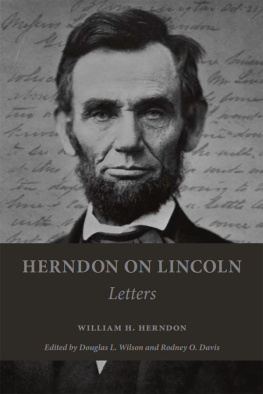
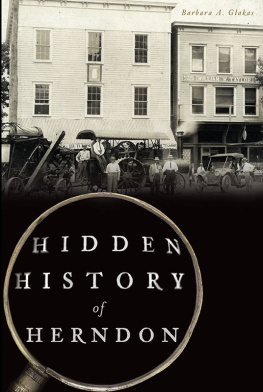

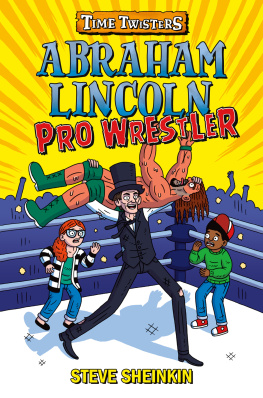
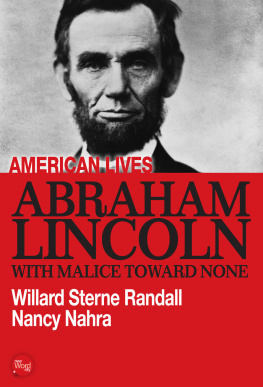


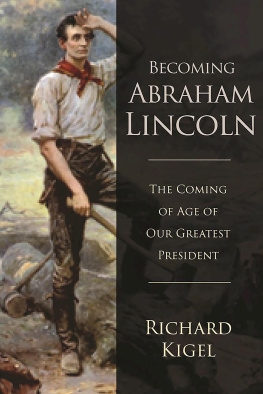

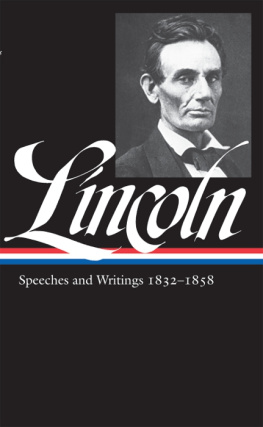

 This book is printed on acid-free paper.
This book is printed on acid-free paper.